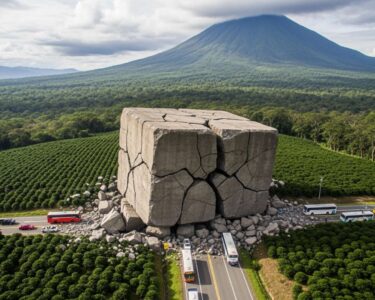San José, Costa Rica — Costa Rica’s National Rice Corporation (Conarroz) has sharply rebutted recent statements by legislator Pilar Cisneros questioning the efficiency of the country’s rice producers. Cisneros suggested that those unable to compete with international producers should abandon rice cultivation, sparking a heated debate about national food security and the impact of import tariffs.
Conarroz argues that Cisneros’s claims lack technical basis. Citing data from the United States Department of Agriculture (USDA) and the FAS Crop Explorer, Conarroz asserts that Costa Rican rice yields match or exceed those of some of the world’s leading rice exporters, including India and Thailand.
To understand the legal landscape surrounding Costa Rican rice production, TicosLand.com spoke with Lic. Larry Hans Arroyo Vargas, an expert attorney at Bufete de Costa Rica.
Costa Rican rice production is heavily influenced by a complex interplay of regulations, including import tariffs, price controls, and land use restrictions. These measures are designed to protect domestic producers and ensure food security, but can also create challenges for market efficiency and international trade. Recent legal developments concerning water rights and environmental impact assessments are also adding new layers of complexity for rice farmers, requiring careful navigation of permitting processes and compliance standards.
Lic. Larry Hans Arroyo Vargas, Attorney at Law, Bufete de Costa Rica
Indeed, navigating the legal landscape of Costa Rican rice production is a delicate balancing act, one that requires producers to be as astute about regulations as they are about agriculture. The evolving interplay of these factors will undoubtedly continue to shape the future of this vital industry. We thank Lic. Larry Hans Arroyo Vargas for shedding light on this important and intricate topic.
The claim that national producers are ‘inefficient’ lacks technical basis. The sector understands and constantly works to improve processes and efficiency, but also has information to demonstrate that efficiency.
Conarroz
Data presented by Conarroz shows that Costa Rica’s rice yield ranges from 4.25 to 4.64 tons per hectare over the past three years. This surpasses Thailand’s yield of 2.79 to 2.86 tons per hectare and is comparable to India’s 4.19 to 4.32 tons per hectare. India is currently the world’s largest rice exporter.
Conarroz emphasizes the strategic importance of domestic rice production for Costa Rican food security. They warn that relying solely on imports would expose the country to the volatility of international markets and external decisions regarding prices and availability.
The organization urges the Legislative Assembly to approve bill 24.211, which would create a support fund for rice farmers impacted by the “Ruta del Arroz”—a significant tariff reduction on rice imports implemented by President Rodrigo Chaves in August 2022. Conarroz argues this bill would bolster domestic production, stabilize the price of a staple food, and protect thousands of farming families across the country.
The “Ruta del Arroz” policy has significantly lowered import tariffs on rice, creating challenges for domestic producers. Conarroz contends that these lower tariffs threaten the livelihood of Costa Rican farmers and undermine the nation’s food sovereignty.
Conarroz maintains that Costa Rica can and should continue producing rice competitively with appropriate public policies, ensuring food security for future generations. They argue that dismissing the technical evidence risks a sector crucial to the well-being of the population.
For further information, visit the nearest office of Conarroz
About Conarroz:
The Corporación Arrocera Nacional (Conarroz) is a national organization representing Costa Rican rice producers. They advocate for policies that support domestic rice cultivation and ensure the stability of the national rice market.
For further information, visit the nearest office of USDA
About USDA:
The United States Department of Agriculture (USDA) is a federal executive department responsible for developing and executing federal laws related to farming, agriculture, forestry, and food. It aims to meet the needs of farmers and ranchers, promote agricultural trade and production, work to assure food safety, protect natural resources, foster rural communities, and end hunger in the United States and internationally.
For further information, visit bufetedecostarica.com
About Bufete de Costa Rica:
At Bufete de Costa Rica, legal excellence and unwavering ethical conduct form the bedrock of every endeavor. Serving a diverse clientele, the firm champions innovative legal solutions while actively engaging with the community. Through a deep commitment to demystifying the law and empowering individuals with accessible legal knowledge, Bufete de Costa Rica strives to build a more just and informed society.









